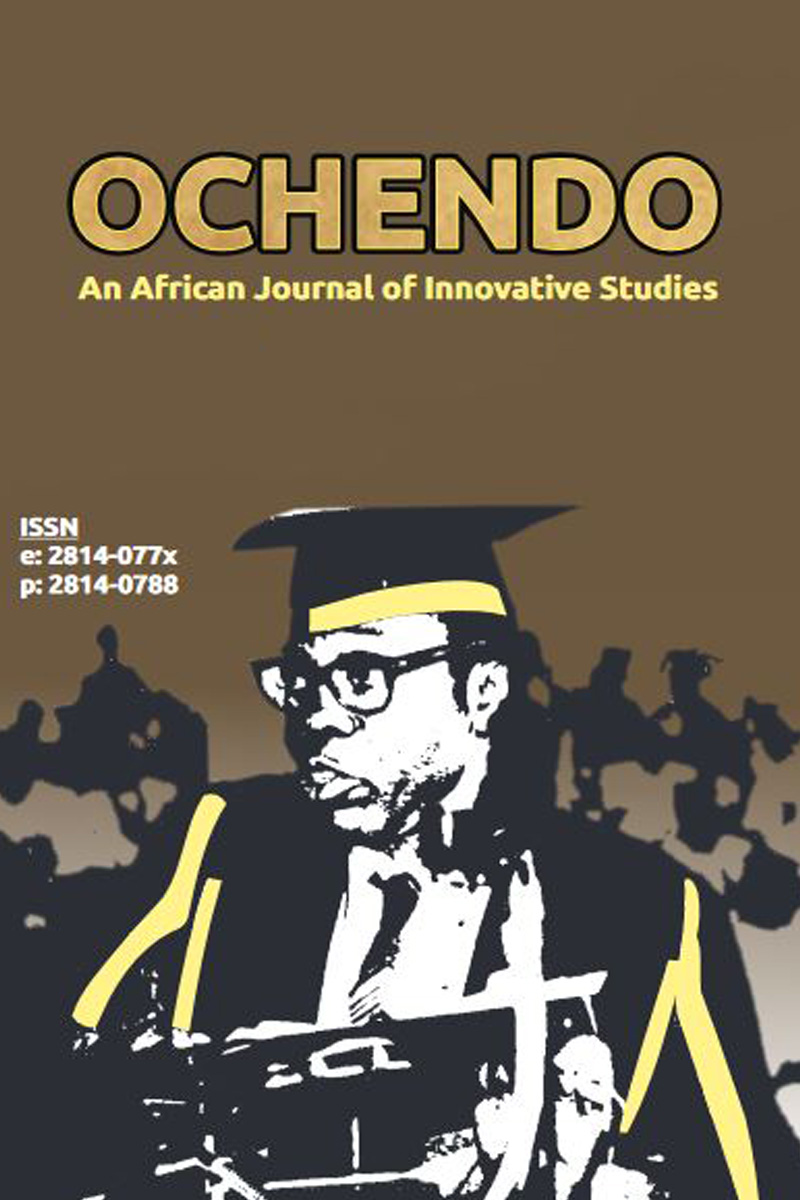 OCHENDO - An African Journal of Innovative Studies (OAAJIS) (Vol. 6 No. 1, 2025)
ARTIFICIAL INTELLIGENCE AND THE FUTURE OF NIGERIAN UNIVERSITY STUDENTS
OCHENDO - An African Journal of Innovative Studies (OAAJIS) (Vol. 6 No. 1, 2025)
ARTIFICIAL INTELLIGENCE AND THE FUTURE OF NIGERIAN UNIVERSITY STUDENTS
ABSTRACT
Artificial Intelligence (AI) is revolutionizing education worldwide, with significant implications for teaching, learning, and skill development. In Nigeria, the integration of AI into higher education is still at an early stage, but its potential to transform university education is immense. This study investigates the role of AI in shaping the future of Nigerian university students, focusing on its impact on teaching methods, student learning experiences, and employability. The objectives of the study are to explore the transformative potential of AI in higher education, identify the challenges hindering its adoption, and propose strategies for effective implementation in Nigerian universities. To achieve these objectives, a mixed-methods approach was employed, combining qualitative and quantitative data from surveys, interviews, and secondary data analysis. The findings reveal that while AI offers opportunities for personalized learning, skill enhancement, and improved employability, its adoption is constrained by infrastructural deficits, policy gaps, and ethical concerns. The study concludes with recommendations for strategic investments, capacity-building initiatives, and collaborative efforts to harness the full potential of AI in Nigerian universities.

